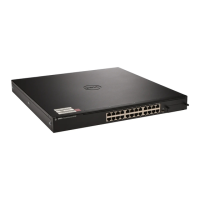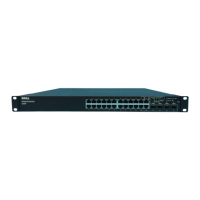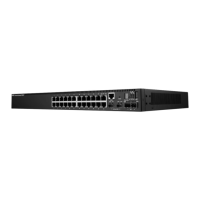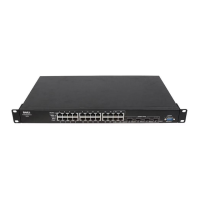SNMP Commands 1033
• default — The engineID is created automatically, based on the device MAC address.
Default Configuration
The
engineID
is not configured.
Command Mode
Global Configuration mode
User Guidelines
If you want to use SNMPv3, you need to specify an engine ID for the device. You can specify
your own ID or use a default string that is generated using the MAC address of the device. If the
SNMPv3 engine ID is deleted, or the configuration file is erased, then SNMPv3 cannot be used.
Since the EngineID should be unique within an administrative domain, the following guidelines
are recommended:
1.
For standalone devices use the default keyword to configure the Engine ID.
2.
For stackable systems, configure your own EngineID, and verify that is unique within your
administrative domain.
Changing the value of snmpEngineID has important side-effects. A user's password (entered on
the command line) is converted to an MD5 or SHA security digest. This digest is based on both
the password and the local engine ID. The command line password is then destroyed, as
required by RFC 2274. Because of this deletion, if the local value of engineID changes, the
security digests of SNMPv3 users will be invalid, and the users will have to be reconfigured.
Example
The following example configures the Engine ID automatically.
console(config)# snmp-server engineID local default
snmp-server filter
Use the snmp-server filter command in Global Configuration mode to create or update a
Simple Network Management Protocol (SNMP) server filter entry. To remove the specified
SNMP server filter entry, use the no form of this command.
Syntax
snmp-server filter
filter-name oid-tree
{included | excluded}
no snmp-server filter
filter-name
[
oid-tree
]
•
filter-name
— Specifies the label for the filter record that is being updated or created. The
name is used to reference the record. (Range: 1-30 characters.)
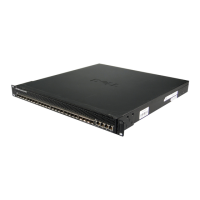
